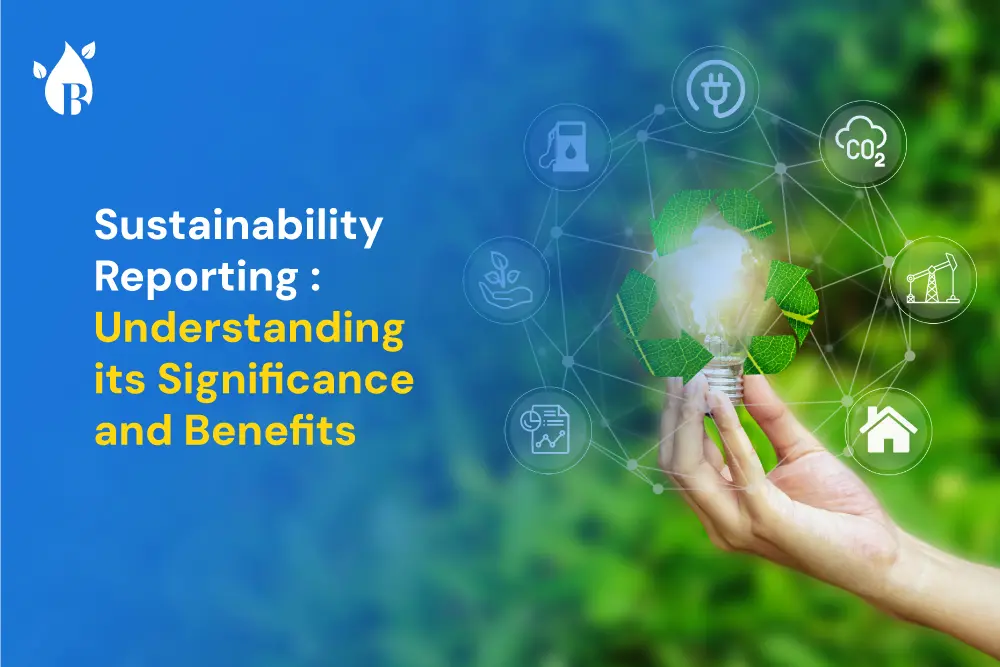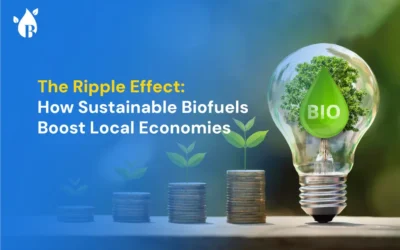
Explore the world of Sustainability Reporting in our latest blog. Delve into the significance of transparent business practices and discover the multitude of benefits it offers. Learn how it enhances transparency, saves costs, and boosts reputation. Stay informed and make a positive impact. Read more now!
Sustainability reporting has gained significant attention, and the buzz surrounding it suggests that its impact is substantial. Yet, is this enthusiasm warranted? Beyond a mere trend, sustainability reporting holds a deeper significance. It represents a significant stride for any business. Still, the critical question remains: does it genuinely live up to its promise of changing the world? In order to grasp the answer, it is necessary to delve into the concept of sustainability reporting. This blog post aims to provide an overview of sustainability reporting and delve into the tangible advantages it brings forth.
What is Sustainability Reporting?
Sustainability reporting, also known as non-financial reporting, is an important tool for companies to demonstrate their progress in various sustainability areas, such as environmental, social, and governance metrics, as well as the risks and impacts they may face. The main goal of sustainability reporting is to drive tangible actions towards sustainability efforts. By utilizing sustainability reporting, companies can effectively communicate the positive and negative impacts of their actions on the environment, society, and economy, and accordingly prioritize their goals.
Sustainability Reporting and Environmental, Social, and Governance (ESG) Goals
While sustainability reporting does not have a fixed format, it generally involves the disclosure of a company’s environmental, social, and governance (ESG) goals, as well as their progress and efforts towards achieving those goals. In addition to ESG initiatives, sustainability reporting may also include financial elements. By providing stakeholders, such as investors, with valuable information beyond traditional financial measures, sustainability reporting allows for a comprehensive understanding of a company’s performance.
ESG goals, which include environmental, social, and governance objectives, are strategic targets that businesses set to effectively manage their impact on society and the environment. These goals encompass three key categories:
Environmental: This category focuses on a company’s efforts to minimize its environmental impact and improve its ecological performance.
Social: The social aspect includes managing relationships with employees, suppliers, customers, and communities affected by the company’s operations.
Governance: Governance goals center around analyzing the company’s leadership, internal controls, audits, and overall corporate governance practices.
It is important to note that there is no one-size-fits-all approach to conducting sustainability reporting. Multiple frameworks exist to accommodate the diverse needs of different organizations.
Contrary to common misconceptions, sustainability reporting provides flexibility in its implementation, rather than being rigid or inflexible. Organizations have the freedom to tailor their reporting practices to align with their unique circumstances and priorities.
“The main goal of sustainability reporting is to drive tangible actions towards sustainability efforts.”
Benefits of Sustainability Reporting:
Let’s see the significance of sustainability reporting:
Gain a competitive advantage: Sustainability reporting can set your company apart from competitors and attract customers who prioritize environmentally and socially responsible practices. By showcasing your sustainability initiatives and progress, you can position your company as a leader in the industry.
Enhance risk management: Identifying and addressing sustainability risks can help mitigate potential financial, reputational, and operational risks. Sustainability reporting allows you to track and manage these risks effectively, ensuring the long-term resilience of your business.
Foster innovation: Sustainability reporting encourages companies to think creatively and find innovative solutions to environmental and social challenges. It promotes a culture of continuous improvement and drives the development of more sustainable business practices.
Strengthen stakeholder relationships: Engaging with stakeholders through sustainability reporting fosters trust, transparency, and accountability. It allows you to communicate your sustainability goals, progress, and challenges effectively, building stronger relationships with customers, investors, employees, and the community.
Increase operational efficiency: Sustainability reporting can lead to cost savings and operational efficiencies by identifying areas where resource consumption can be reduced, waste minimized, and efficiency improved. This not only benefits the environment but also your bottom line.
Improve employee engagement: Demonstrating a commitment to sustainability through reporting can enhance employee engagement and morale. Employees are more likely to feel proud and motivated to contribute to a company that aligns with their values and prioritizes environmental and social responsibility.
Build resilience in supply chain: Sustainability reporting helps identify potential risks and opportunities within your supply chain. By encouraging suppliers to adopt sustainable practices and monitoring their performance, you can build a resilient and responsible supply chain that delivers long-term value.
Drive positive societal impact: Through sustainability reporting, you can showcase the positive impact your company has on society and contribute to the achievement of the United Nations Sustainable Development Goals. This can enhance your company’s reputation and attract stakeholders who are aligned with your values and mission.
Future-proof your business: Sustainability reporting ensures that your company is prepared for the changing regulatory landscape and evolving stakeholder expectations. By proactively addressing sustainability issues and integrating them into your business strategy, you can future-proof your business and remain competitive in a rapidly changing world.
In conclusion, sustainability reporting provides numerous benefits, including strategic insights, regulatory compliance, customer attractiveness, talent attraction, employee loyalty, investor confidence, agenda elevation, increased transparency and accountability, and overall long-term business success.



